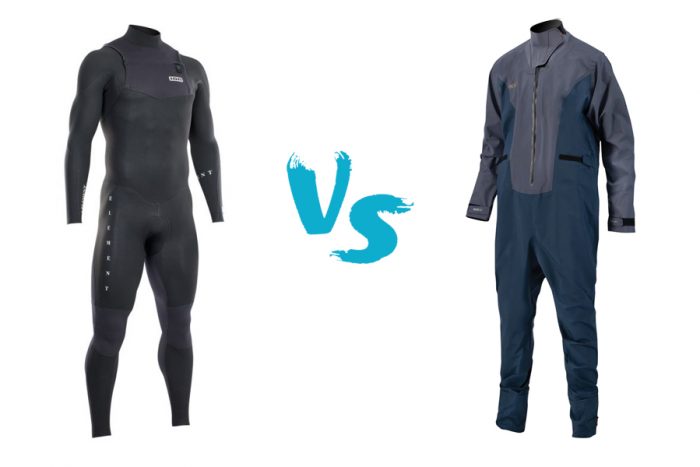Choosing the right exposure suit is essential for comfort, safety, and an enjoyable diving experience. While wetsuits and dry suits both serve to keep you warm underwater, they function in different ways and are suited to different conditions. Understanding when to use a dry suit instead of a wetsuit can make a significant difference in your diving experience, particularly in colder waters.
Understanding the Difference: Dry Suit vs. Wetsuit
Before deciding which suit to use, it’s important to know how they work:
Wetsuit: How It Works
A wetsuit is made from neoprene and allows a small amount of water to enter. Your body warms this trapped water, creating a layer of insulation. Wetsuits come in different thicknesses (e.g., 3mm, 5mm, 7mm) depending on the water temperature, but they don’t keep you completely dry.
Dry Suit: How It Works
A dry suit is waterproof and sealed, keeping you completely dry. Instead of relying on a thin water layer for insulation, it uses trapped air and thermal undergarments to regulate body temperature. Dry suits provide greater protection in cold water, long dives, and extreme conditions.
When to Use a Dry Suit Instead of a Wetsuit
There are specific situations where a dry suit is the better option over a wetsuit.
Cold Water Diving (Below 15°C / 59°F)
Water temperatures below 15°C can quickly lead to hypothermia, even with a thick wetsuit. A dry suit keeps you dry and allows for thermal layering to maintain warmth, making it ideal for cold water locations such as:
- Norway, Iceland, and Canada
- Southern Australia and Tasmania
- United Kingdom and Northern Europe
Long Dive Durations
If you’re planning multiple dives or extended bottom times, a dry suit provides superior thermal protection. This is particularly important for:
- Technical diving (decompression dives)
- Wreck and cave diving
- Scientific or commercial diving
Ice Diving & Extreme Environments
In sub-zero temperatures, wetsuits are not sufficient to maintain body warmth. A dry suit is essential for ice diving and other extreme conditions, as it provides insulation against freezing water and harsh wind chill.
Surface Interval Considerations
Even in mildly cold waters, a wet wetsuit can make surface intervals uncomfortable. A dry suit keeps you warm before, during, and after a dive, making it a better option for:
- Multi-dive days
- Cold-weather diving expeditions
- Harsh wind conditions
If you’re diving in colder environments or planning longer dives, dry suit diving is the best way to stay warm and comfortable throughout your time in the water.
Advantages & Disadvantages of Dry Suits
While dry suits offer significant benefits, they also come with some trade-offs.
Pros:




Cons:



When a Wetsuit Might Be Better
A wetsuit may still be the preferred option in certain conditions:
- Tropical and warm water diving (20°C+ / 68°F+)
- Short recreational dives (less than 60 minutes)
- Freediving and spearfishing (more flexibility needed)
- Lower cost option (wetsuits are more affordable)
How to Decide: Wetsuit or Dry Suit?
Your decision should be based on:
- Water temperature – Cold water? Go for a dry suit.
- Dive type – Extended dives or multiple dives in a day? Dry suit is better.
- Budget – While dry suits are an investment, they last longer with proper care.
If you’re unsure, try both suits before purchasing. Many dive shops offer dry suit specialty courses, making it easier to transition.
Next Steps
Choosing between a wetsuit and a dry suit depends on temperature, dive duration, and comfort preferences. If you’re diving in cold waters or planning long dives, a dry suit is the superior choice for warmth and safety. However, for warmer water and recreational dives, a wetsuit remains a convenient and cost-effective option.



